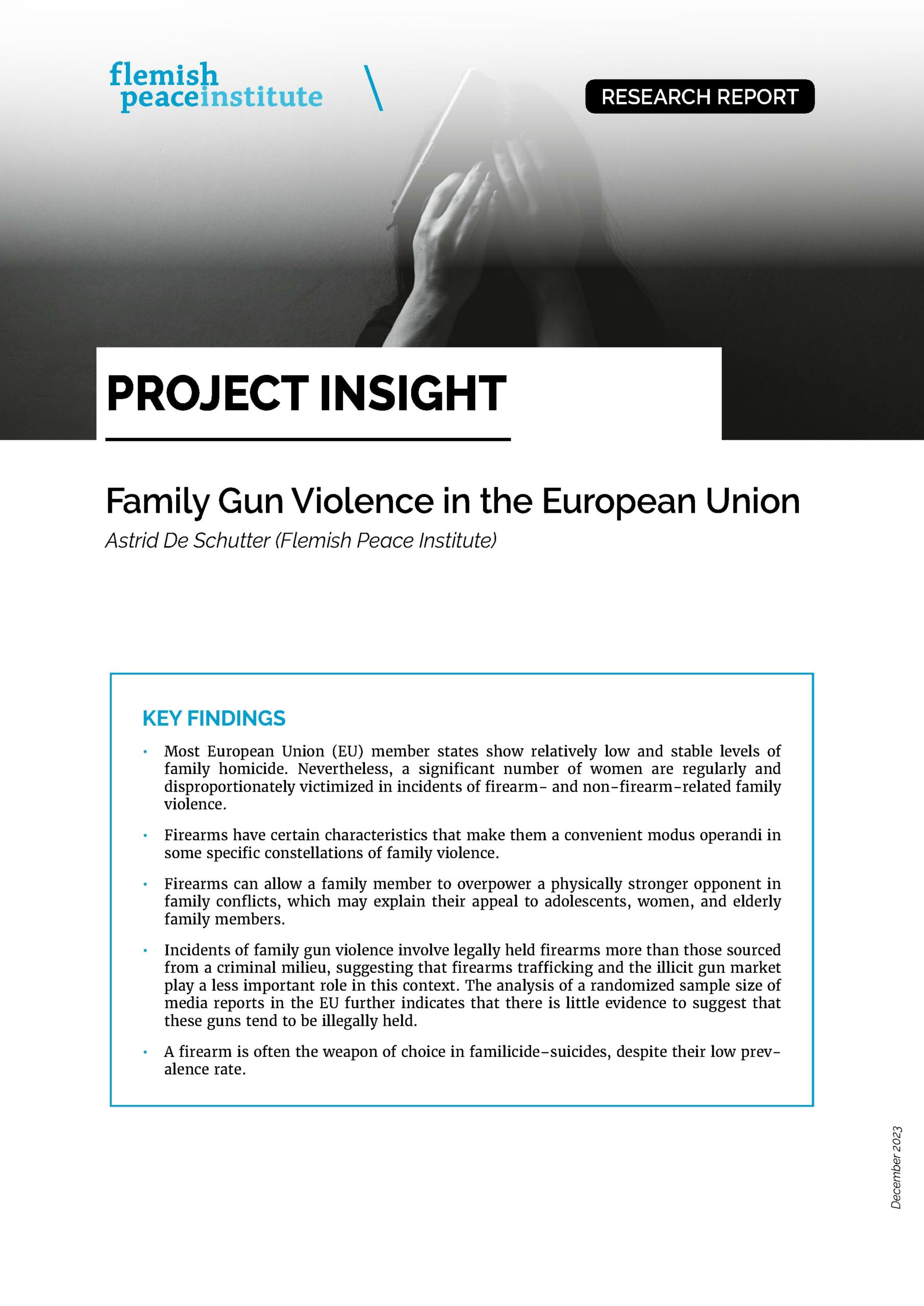Project Insight Research Report: Family Gun Violence in the European Union
Family Gun Violence in the European Union
Most European Union (EU) member states show relatively low and stable levels of family homicide. Nevertheless, a significant number of women are regularly and disproportionately victimized in incidents of firearm- and non-firearm-related family violence.
Firearms have certain characteristics that make them a convenient modus operandi in some specific constellations of family violence.
Firearms can allow a family member to overpower a physically stronger opponent in family conflicts, which may explain their appeal to adolescents, women, and elderly family members.
Incidents of family gun violence involve legally held firearms more than those sourced from a criminal milieu, suggesting that firearms trafficking and the illicit gun market play a less important role in this context. The analysis of a randomized sample size of media reports in the EU further indicates that there is little evidence to suggest that these guns tend to be illegally held.
A firearm is often the weapon of choice in familicide–suicides, despite their low prevalence rate.

About the author
Astrid De Schutter is a researcher at the Flemish Peace institute. Astrid studied criminology at Ghent University and has experience in policy- and practice-oriented research on the topics of drugs, prison, organised crime and vulnerable people. Her work at the Flemish Peace Institute mainly focuses on firearms violence and the nexus between firearms
and drugs.
